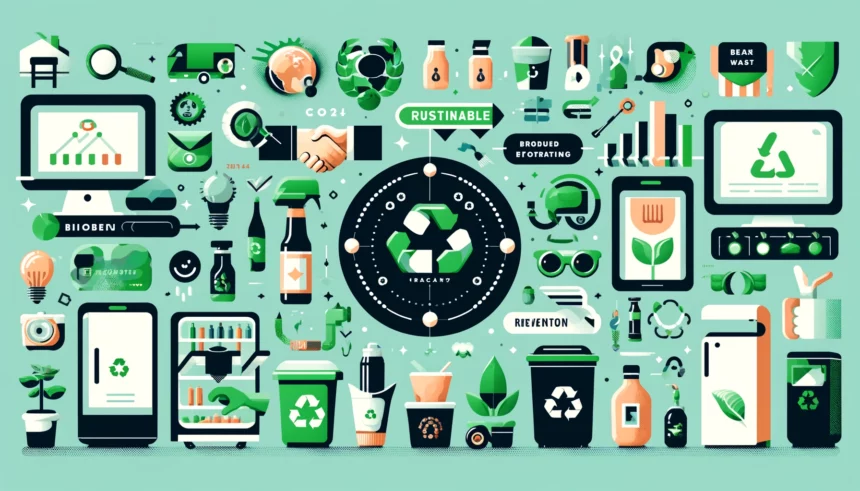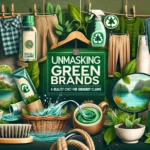Introduction
In a world where consumers are becoming increasingly eco-conscious, brands are stepping up by weaving sustainability into their core messaging. The shift isn’t just about using eco-friendly materials; it’s about embracing recycling, reducing waste, and building trust through transparent practices.
Consumer Attitudes Toward Sustainability
It’s clear that sustainability matters to consumers. A study by Blue Yonder found that a whopping 78% of people consider environmental impact when making purchases. This growing eco-awareness is pushing brands to rethink their strategies and ensure sustainability is a visible part of their business model.
Fashion Forward: Circular Economy in Action
The Resale Revolution
Fashion is a frontrunner in the sustainability charge, especially with the boom in the resale market. ThredUp reports that by 2027, the secondhand clothing industry could hit a staggering $350 billion.
Spotlight on Innovators:
- Trashie: This company’s “Take Back Bag” lets customers recycle clothing from any brand, offering rewards redeemable at popular stores.
- Carhartt Reworked: Carhartt’s expansion of its resale program allows for trade-ins of gently worn items for store credit.
- Figs Scrubs Exchange: In a special offer, Figs took old scrubs and turned them into new materials, incentivizing customers with significant discounts.
The Takeaway
As Jamie McGarry points out, engaging consumers with easy-to-understand sustainability programs helps build brand credibility and trust.
Tackling Tough Trash
Beauty Industry Challenges
The beauty industry often struggles with packaging waste, especially items too small to be traditionally recycled. Ulta Beauty, in partnership with Pact Collective, has set up bins in all its stores for customers to dispose of beauty product containers responsibly.
Educational Efforts:
A Quad study highlighted that proper in-store signage could boost recycling bin usage by up to 30%. Informative displays not only facilitate recycling but also educate shoppers about the environmental impact of their choices.
Taco Bell’s Innovative Recycling
Taco Bell is pushing the envelope with TerraCycle to recycle hard-to-recycle items like sauce packets and various plastic containers, turning them into raw materials for new products.
Reducing Food Waste
Creative Solutions
- Hellmann’s Meal Reveal: An AI tool by Hellmann’s helps users find recipes based on what’s already in their fridge, tackling the issue of “fridge blindness.”
- Flashfood App: This app allows shoppers to buy surplus items at reduced prices, significantly reducing food waste while improving access to food.
Strategic Partnerships
The Save Mart Companies teamed up with Flashfood, proving that innovative partnerships can address food waste and accessibility simultaneously.
Building Consumer Trust
Despite the willingness to pay more for sustainable products, trust in brands’ environmental claims remains low. Clear, actionable sustainability initiatives are critical in bridging this gap and fostering a deeper connection with eco-conscious consumers.
Conclusion
As 2024 unfolds, more brands are expected to not only adopt sustainable practices but also integrate them into their marketing strategies. For brands looking to thrive in a greener future, it’s about being genuine in their efforts and transparent in their communication. The rewards? Loyal customers and a healthier planet.
Navigating this landscape requires a thoughtful approach where action aligns with advocacy—making sustainability more than just a buzzword, but a real commitment reflected in every aspect of business operation.
















